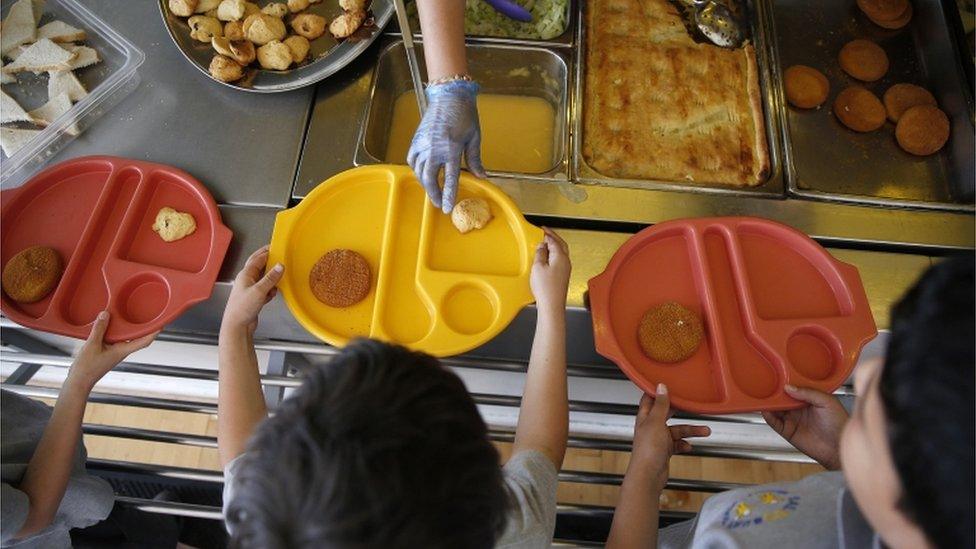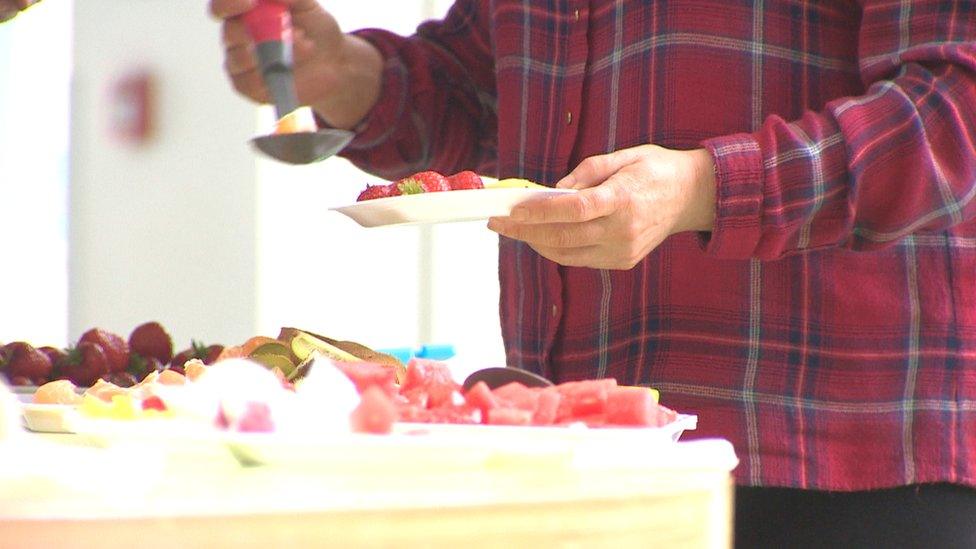One in four Scottish primary children not taking free school meals
- Published

Many children who are entitled to free school meals are not taking them every day, according to research.
The Scottish poverty and inequality research unit at Glasgow Caledonian University has been looking at the school meal service.
The team found about a quarter of the primary children registered for free meals do not have one on a typical day.
The proportion is even higher among secondary school pupils. Overall, 350,000 school meals are served daily.
Close to 100,000 free school meals are also served every day to pupils who are entitled to one because their families are eligible for social security.
350,000 are served every day in Scotland
51%of pupils have a school meal each day
76%of primary pupils entitled to a free meal usually take one
40%of secondary pupils entitled to a free meal don’t have one
The latest research, external was commissioned by the Association of Facilities Managers (Assist FM), whose members include every Scottish local authority school meals provider.
Jayne Jones, national chairwoman of Assist FM, said: "This report raises some very important issues for school meals services.
"All of our members are dedicated, as local authority providers, to ensuring that children receive a healthy nutritious meal at lunchtime. For many school pupils, the only hot meal they will have each day is at school.
"However, there are areas that we need to explore further, such as what happens outside the school gate, as well as the support we need internally within schools to achieve better uptakes, especially for pupils who are entitled to free school meal provision."

All pupils in P1, 2 and 3 in Scotland are entitled to a free school meal - after that, they depend on family circumstances.
However, some councils exceed their statutory obligations. For instance, all P4 pupils in Glasgow are entitled to a free school meal and the council plans to extend entitlement to all primary school pupils before the next local elections.
Uptake across Scotland was higher in primary schools and in schools which were either smaller in size or more rural in character.
The report was compiled by Professor John McKendrick and colleagues at GCU.
It suggested some practices in schools may work against increasing the uptake of school meals, including:
Allowing students to eat food brought in from outside the school in dining halls
Failing to introduce staggered lunch breaks to extend capacity
The report also found anecdotal evidence that new school build and redevelopment had reduced the capacity to deliver school meals at lunchtime.
Healthier option
It is unlikely, however, that any school would want to effectively compel students to take school meals.
In recent years, the emphasis has been on trying to promote the idea that school meals are a healthier and more cost-effective option than a packed lunch or a meal brought in from outside.
The Scottish government has encouraged all families who have a child above P3 who is eligible for free school meals to register them.
A spokesman said: "Access to healthy and nutritious school meals is essential, given the clear benefits for pupils' learning and health.
"Free school meals provide much-needed support and assistance, saving families on average £400 a child per year."
A spokesman for the local council body Cosla said: "It is important that we continue to work to remove any potential or perceived barriers to the uptake of school meals across the board.
"It should also be noted that most local authorities are now providing food and activities outside of normal school hours, including before and after school and in the school holidays."